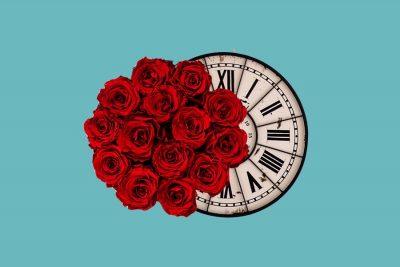
The biggest issue still plaguing the minds of college students is heartbreak. It is deadly and universal.
Many friends will offer a similar prognosis — early 2000s rom-coms and a good cry. However, it seems that heartbreak is never treated with a modern rom-com. Most people do not even know about rom-coms such as “When We First Met,” starring Alexandra Daddario and Adam Devine, or “Set It Up,” starring the incomparable Zoey Deutch and Glen Powell.
So why can’t we mend modern heartbreaks with modern solutions? What happened to the rom-com genre, and how can we be active in its revival?
Honoring the Classics
The rom-com genre did not sprout out of anywhere. Its roots can be traced back decades ago. In non-film terms, the rom-com genre could probably be traced back generations ago, with playwrights such as Shakespeare capitalizing on the follies and idiosyncrasies of love.
However, after that, cinema legends such as Marilyn Monroe and Audrey Hepburn dominated the rom-com genre with boisterous and comforting rom-coms such as “Gentlemen Prefer Blondes” or “Funny Face.”
The appeal of these rom-coms is their resistance to time. Unlike modern rom-coms that are hyper-aware of the present, these classics stand the test of time. Take “Gentlemen Prefer Blondes”— while on the surface the piece follows a ditzy Lorelei Lee played by Marilyn Monroe, her performance is dripping with satire and crescendos at her famous “Diamonds are a Girl’s Best Friend” piece.
The movie’s themes — whether that be gender dynamics or wealth — and its humor are universal. Currently, rom-coms follow the same seemingly tried and true structure. “Gentlemen Prefer Blondes” is filled with daring set designs and unexpected turns that constantly challenge the idea of the rom-com genre.
Uplifting Indie Voices
Speaking of the tried and true structure of rom-coms, another reason why the genre is under life support is because of a lack of empowering indie filmmakers that challenge the notions of a homely rom-com film. That is, a film with a tested trope — enemies to lovers, or friends to lovers. Diversifying what a rom-com can be can help revive the genre.
One of the best ways to find rom-coms is by looking overseas at filmmakers. Here, there are two barriers — an appreciation of the comfort rom-com and an acute fear of subtitles. However, when both these fears are overcome, viewers can appreciate films like “The Umbrellas of Cherbourg.” A film with the entire dialogue sung to the audience, like a gripping lullaby, is guaranteed to mend any broken heart.
Besides this, filmmakers like Richard Linklater have crafted romances with compelling personalities, like “Before Sunrise.” The film lacks any action and focuses on the smaller and more humorous moments between lovers through a predominately dialogue-driven movie.
Smaller movies like this break the stereotypes of a rom-com, but offer even more insightful awareness of the trials and tribulations of love through their unique formats.
Bringing Back Comedy
Finally, many rom-coms nowadays neglect the intricate balance between romance and comedy. There are issues on both sides — movies such as “Before Sunrise” can read as too romantic, while “Forgetting Sarah Marshall” can read as having too much comedy.
So how do filmmakers find the balance?
As mentioned before, one way to ensure this is by making the humor timeless. Take away long and arduous love confessions — they usually feel out of place after establishing a humorous connection between people. Instead, filmmakers should display romance in more nuanced and smaller ways — stolen glances or unadulterated passion. An excellent example of this is the ending of “Bridget Jones’s Diary.”
Another way is to make sure jokes withstand any social situation. For example, in rom-coms such as “Funny Girl,” Barbra Streisand’s songs were not only filled with countless puns that would be difficult to catch even after three rewatches, but her performance is unfading.
Rom-coms should practice the classic art of showing, not telling. Let audiences soak up the comedic moments, then try to savor in the romantic moments that follow. The two do not have to be mutually exclusive.
Admittedly, with all the hustle and bustle of everyday life, a rom-com is necessary to break the cycle. Guilty pleasure or not, there is always a joy to be derived from a solid rom-com. But make sure you know where to look. Until then, aspiring filmmakers should make the revival of the necessary — and lucrative — genre a goal in their portfolio.























































































































Hind • Nov 15, 2022 at 4:32 pm
but… but… what about enemies to lovers?!??